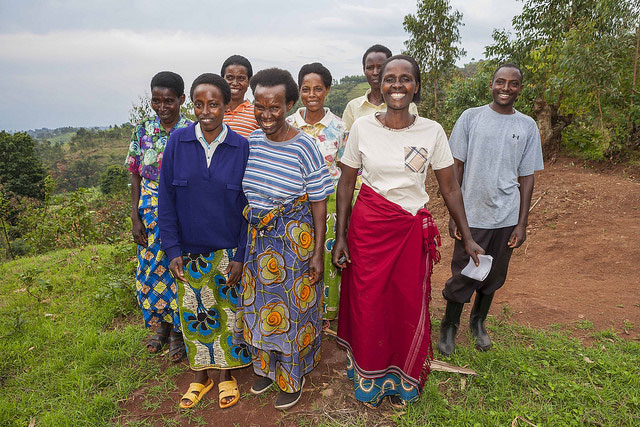SURF was founded by Mary Kayitesi Blewitt OBE, a British citizen of Rwandan origin.
Mary lost over 50 members of her family in the 1994 Genocide against the Tutsi in Rwanda.
Seeking sanctuary in her grandfather’s village, her family was herded by Hutu neighbours into a school classroom to await the Interahamwe militia, who later arrived in trucks, armed with machetes.
After the killing ended, Mary travelled from her then home in the UK to Rwanda and managed to locate the bodies of her loved ones and lay them to rest. Then she travelled around Kigali and witnessed the exhumation of mass graves and struggled to understand the scale of the killings.
In her compelling book You Alone May Live she recalls standing shoulder to shoulder with the Hutu neighbours who had done nothing to help when the killings began but later helped her bury her family.
To try to make sense of what had happened, Mary undertook voluntary work, believing that she had been allowed to survive in order to help others like her.
She became a figure of trust with survivors seeking her out to tell their own stories of atrocity and survival.
From July 1994 she helped establish the first survivors’ organisations in Rwanda working for the Rwandan Ministry of Rehabilitation.
In 1995 she returned to the UK to establish Survivors Fund (SURF) – a fund to support survivors of the Genocide against the Tutsi in Rwanda. It was formally registered as a UK charity in 1997 (No. 1065705) and a company limited by guarantee (No. 03411565).
Since its inception, SURF and its partners have helped hundreds of thousands of survivors and their dependants — providing them with counselling, support, health services, housing, legal representation and opportunities for work.
Mary and SURF’s vision is a society where survivors get a chance to rebuild their lives and are integrated and respected in society — where they can live, and find hope again.
Read more about SURF’s achievements
Buy You Alone May Live here.
Learn more about the Genocide against the Tutsi in Rwanda

